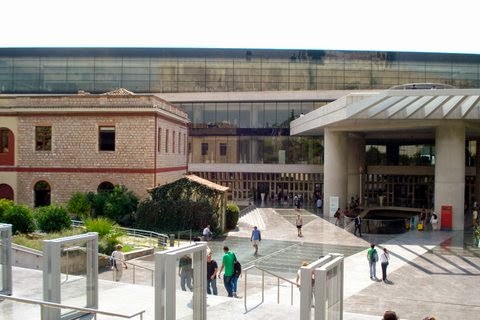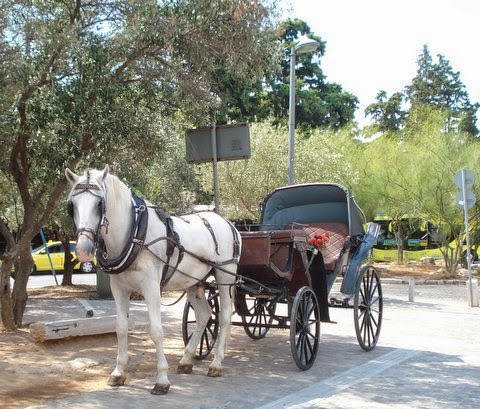?
?
?
I'm as familiar with Athens as I am of my own home town, Vancouver, and consider it my 'second home'. But as I was working on an Athens Guide e-book for an American publisher, the last time I went to visit I had to spend extra time exploring and making note of things that would be useful for a tourist.Athens can be overwhelming but it isn't that difficult to find your way around, in particular since most tourists are most interested in the old part of the city and the ancient sites, all of which are walking-distance from most hotels if you are located near the Plaka or Syntagma Square areas of the city.
There is a very good tourist office located on Dionissiou Areopagitou pedestrian walk that runs along beside the Acropolis. The New Acropolis Museum is nearby, across the road. The entrance to the Theatre of Dionysus is right there and just up the street is the entrance to the Theatre of Herod Atticus (The Herodian) where you can see some outstanding performances during the summer months.
New Acropolis Museum
Acropolis
Entrance to Herod Atticus Theatre.
I used to live on Vironos Street (Byron's Street) that runs right into the Areopagitou. Across the square where the roads cross are lots of good tavernas (on Makrigiani as well as on the Areopagitou. And this is where you can board one of the cute little tourist trains or perhaps take a ride on a horse and buggy.
Vironos Street
Gypsy Boy
As you walk along Apostolou Pavlou Street, on the right hand side is a part of the Agora that is partially excavated with some interesting things to see as well as a great view of the Acropolis and Parthenon. On the left had side there are also some bits of ancient Athens that are often by-passed by tourists who don't know they exist.
View of Lykebettus from Thision.
Acropolis View
Church built on site of ancient sanctuary
Thission Street cafes
Enjoy an iced frappe
Street painting
Entrance to Monastiraki from Thission
Mosque
Mmm good gyro on pita!
Guess who is in this photo? (Joan Rivers!)
Outside Bairaktaris Taverna
This part of Plaka is one of my favorite places to browse, and if you're an archaeology/history buff like me you'll enjoy it too! There are also many pleasant tavernas under the trees where you can enjoy a glass of krasi and a delicious Greek meal.
There's so much to explore in Plaka and you need to spend a couple of days here if you really want to enjoy it all.
You can tour around this area on the Fun Train!
NEXT: Exploring the Roman and Turkish parts of PLAKA.


























Tidak ada komentar :
Posting Komentar